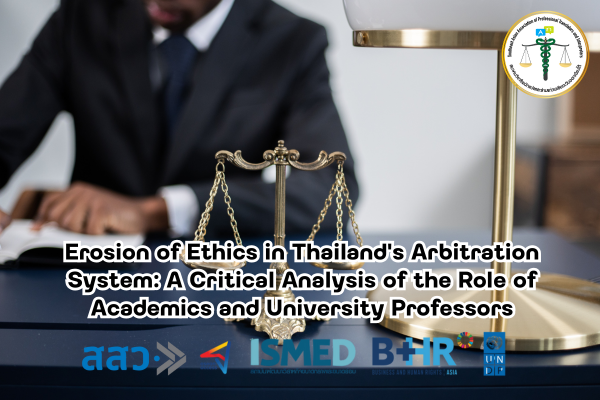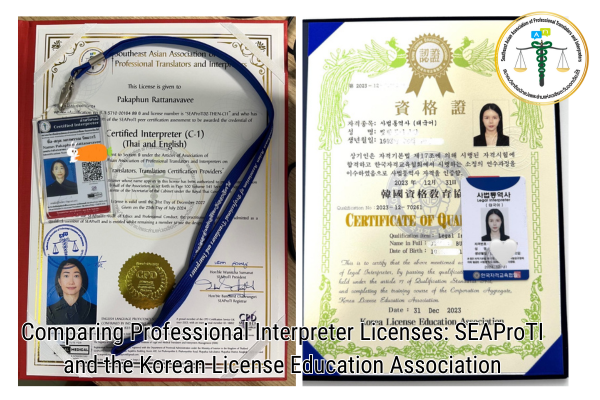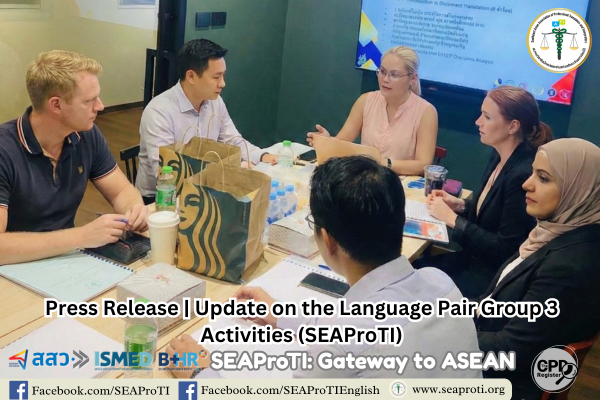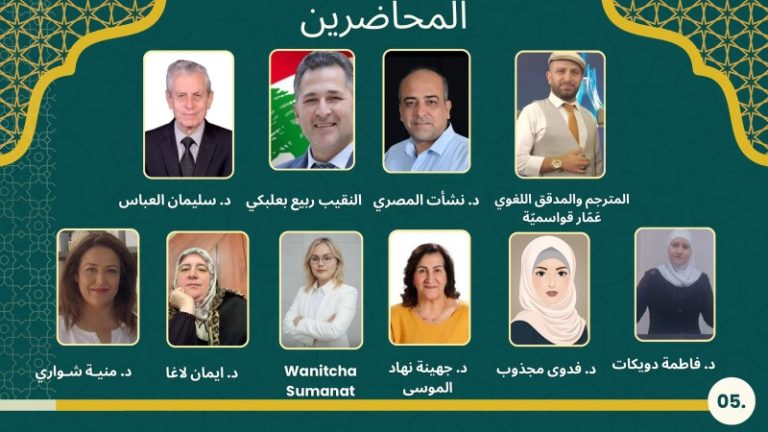Erosion of Ethics in Thailand’s Arbitration System:
A Critical Analysis of the Role of Academics and University Professors
Abstract
8 May 2025, Bangkok – This article critically analyzes fraudulent behavior within Thailand’s arbitration process, particularly when arbitrators are academics or university professors. It highlights techniques used to pursue self-interest through academic networking, conflicts of interest, biased rulings, and the abuse of authority to suppress opposing parties. The article concludes with policy recommendations to restore trust and integrity in Thailand’s arbitration system within the international context.
1. Introduction
Arbitration is a preferred legal mechanism for resolving commercial disputes, especially those involving foreign parties, due to its perceived neutrality, efficiency, and reduced judicial burden1. However, in Thailand, concerns have emerged over the impartiality of the arbitration process. Certain arbitrators—particularly academics or university professors—have been accused of exploiting their positions to secure personal gain and compromise the principles of due process and integrity.
2. Techniques for Advancing Self-Interest in Arbitration
2.1 Academic Networking for Hidden Agendas
Some academics organize free academic seminars for lawyers from prominent law firms under the guise of scholarly exchange, while their underlying goal is to build strategic connections to secure future appointments as legal counsel or arbitrators ^2^.
2.2 Orchestrating Appointments through Conflicts of Interest
These individuals often nominate one another for arbitral positions within a closed circle, creating a cycle of mutual promotion and raising serious ethical concerns regarding impartiality ^3^.
2.3 Issuing Biased Decisions
Once appointed, some arbitrators—under the cloak of academic credibility—render decisions that clearly favor the party with whom they have ties. The opposing party may feel culturally or socially pressured into silence, despite procedural unfairness ^4^.
2.4 Abuse of Authority to Suppress Opposition
Reports have surfaced of arbitrators arbitrarily removing opposing counsel from proceedings or barring the presentation of key evidence, thereby obstructing a fair hearing and violating fundamental principles of due process ^5^.
3. Impact on the Credibility of Thailand’s Arbitration System
Such practices severely damage international confidence in Thailand as a neutral arbitration venue and undermine the state’s ambition to become a regional legal hub6. These issues also threaten the overall integrity of the country’s legal infrastructure and its alignment with global standards.
4. Comparative Case Study: Arbitration in Singapore
Singapore provides a compelling contrast. The Singapore International Arbitration Centre (SIAC) enforces strict ethical protocols, requiring arbitrators to disclose any potential conflict of interest before appointment. This policy helps ensure transparency and maintains international confidence in its arbitration system ^7^.
5. Policy Recommendations
- Establish an Independent Oversight and Complaint Mechanism
- Independent bodies should review arbitrator conduct and handle complaints regarding ethical violations.
- Mandate Transparent Conflict of Interest Declarations
- All arbitrators must file and disclose potential conflicts prior to accepting appointments.
- Separate Academic Roles from High-Risk Arbitration Proceedings
- In cases where academic affiliations create substantial bias risk, alternative arbitrators should be preferred.
- Blacklist Arbitrators Found Guilty of Serious Misconduct
- Those who violate ethical norms should be banned from serving in future proceedings.
6. Conclusion
Although arbitration remains a vital mechanism for reducing court caseloads and supporting cross-border commerce, it must be governed by robust ethical standards. The unchecked actions of some academics serving as arbitrators in Thailand present a clear threat to the rule of law and the country’s reputation as a reliable arbitration venue. A comprehensive reform of the regulatory and ethical framework is urgently needed.
References
- BOI. (2021). Thailand as an Arbitration Hub. Bangkok: Thailand Board of Investment.
- Singapore International Arbitration Centre. (2023). Code of Ethics for Arbitrators. Retrieved from https://www.siac.org.sg
- UNCITRAL. (2013). UNCITRAL Arbitration Rules (as revised in 2010). United Nations.
- Thai Arbitration Institute. (2022). Complaint Report on Arbitrator Misconduct. Bangkok: Thai Arbitration Institute.
- Thammasat University. (2023). Academic Seminar: Ethics in Thai Arbitration. Bangkok: Faculty of Law.
Footnotes
1. See Arbitration Act B.E. 2545 (2002), Section 11, on the requirement of arbitrator impartiality.
2. Based on interviews conducted with former arbitrators in the 2024 Thai Arbitration Ethics Research Project.
3. UNCITRAL Arbitration Rules 2013, Article 12 on disclosure and challenge.
4. Academic Seminar, “Ethics in Thai Arbitration”, Thammasat University, 2023.
5. Thai Arbitration Institute Report on Complaints Against Arbitrators, 2022.
6. Thailand Board of Investment (BOI), “Thailand as an Arbitration Hub”, 2021.
7. Singapore International Arbitration Centre. (2023). Code of Ethics for Arbitrators.
SEAProTI’s certified translators, translation certification providers, and certified interpreters:
The Southeast Asian Association of Professional Translators and Interpreters (SEAProTI) has officially announced the criteria and qualifications for individuals to register as “Certified Translators,” “Translation Certification Providers,” and “Certified Interpreters” under the association’s regulations. These guidelines are detailed in Sections 9 and 10 of the Royal Thai Government Gazette, issued by the Secretariat of the Cabinet under the Office of the Prime Minister of the Kingdom of Thailand, dated July 25, 2024, Volume 141, Part 66 Ng, Page 100.
To read the full publication, visit: the Royal Thai Government Gazette
ความเสื่อมของจริยธรรมในระบบอนุญาโตตุลาการไทย:
วิเคราะห์เชิงวิพากษ์บทบาทของนักวิชาการและอาจารย์มหาวิทยาลัย
8 พฤษภาคม 2568, กรุงเทพมหานคร – บทความนี้วิเคราะห์พฤติกรรมที่เข้าข่ายฉ้อโกงในกระบวนการอนุญาโตตุลาการของประเทศไทย โดยเฉพาะเมื่อผู้ดำรงตำแหน่งเป็นนักวิชาการหรืออาจารย์มหาวิทยาลัย ผู้เขียนชี้ให้เห็นถึงเทคนิคการแสวงหาประโยชน์ส่วนตนผ่านการสร้างเครือข่าย การมีผลประโยชน์ทับซ้อน การตัดสินอย่างลำเอียง และการใช้อำนาจกีดกันคู่กรณี พร้อมเสนอแนวทางปฏิรูปเพื่อฟื้นฟูความน่าเชื่อถือของระบบอนุญาโตตุลาการไทยในบริบทระหว่างประเทศ
บทนำ
อนุญาโตตุลาการ (arbitration) เป็นกลไกทางกฎหมายที่ได้รับความนิยมในการระงับข้อพิพาทเชิงพาณิชย์ โดยเฉพาะในกรณีที่คู่กรณีมาจากต่างประเทศ ด้วยเหตุผลที่เน้นความเป็นกลาง รวดเร็ว และลดภาระศาล^1^ อย่างไรก็ตาม ความเป็นกลางของอนุญาโตตุลาการกลับกลายเป็นที่ถกเถียงในประเทศไทย เมื่อพบว่ามีบางกลุ่ม โดยเฉพาะผู้ที่มีสถานะเป็นนักวิชาการหรืออาจารย์มหาวิทยาลัย ใช้ตำแหน่งหน้าที่เพื่อแสวงหาผลประโยชน์ส่วนตน และบั่นทอนหลักธรรมาภิบาลของกระบวนการทั้งหมด
เทคนิคการแสวงหาประโยชน์ของนักวิชาการในกระบวนการอนุญาโตตุลาการ
การสร้างเครือข่ายเพื่อประโยชน์แอบแฝง
มีนักวิชาการบางรายจัดสัมมนาเชิงวิชาการให้ทนายความจากสำนักงานกฎหมายใหญ่ ๆ เข้าเรียนฟรี โดยไม่ได้ตั้งอยู่บนเจตนาทางวิชาการ แต่มีวัตถุประสงค์เพื่อผูกสัมพันธ์และรับงานว่าความหรืออนุญาโตตุลาการในภายหลัง^2^
การจัดฉากแต่งตั้งอนุญาโตตุลาการ
บุคคลกลุ่มเดียวกันในแวดวงวิชาการมักสลับบทบาทกันเสนอชื่อให้กันและกันเป็นอนุญาโตตุลาการ ซึ่งก่อให้เกิดผลประโยชน์ทับซ้อนอย่างร้ายแรง (conflict of interest)^3^
การวินิจฉัยแบบลำเอียง
ในหลายกรณี อนุญาโตตุลาการที่เป็นอาจารย์มหาวิทยาลัยอาศัยความน่าเชื่อถือในตำแหน่ง ทำให้ฝ่ายตรงข้ามรู้สึกเกรงใจและไม่กล้าตั้งคำถาม แม้ผลการชี้ขาดจะมีลักษณะบิดเบือนข้อเท็จจริงหรือเข้าข้าง^4^
การใช้อำนาจขจัดผู้ไม่เห็นด้วย
พบพฤติกรรมการไล่ผู้แทนฝ่ายตรงข้ามออกจากกระบวนการโดยไม่มีเหตุอันควร หรือการสั่งห้ามไม่ให้มีการแสดงพยานหลักฐานบางรายการ ทำให้กระบวนการขาดความยุติธรรมโดยสิ้นเชิง^5^
ผลกระทบต่อความน่าเชื่อถือของระบบอนุญาโตตุลาการไทย
พฤติกรรมเหล่านี้สร้างความเสื่อมศรัทธาในหมู่คู่กรณีต่างชาติที่เลือกประเทศไทยเป็นที่ตั้งของกระบวนการอนุญาโตตุลาการ และยังขัดกับความพยายามของรัฐในการผลักดันให้ไทยเป็นศูนย์กลางด้านกฎหมายระหว่างประเทศ^6^ การขาดความเป็นกลางอย่างเป็นระบบ ยังส่งผลกระทบต่อความไว้วางใจในระบบกฎหมายโดยรวม
กรณีศึกษาเปรียบเทียบ: ระบบอนุญาโตตุลาการในสิงคโปร์
สิงคโปร์เป็นตัวอย่างของประเทศที่ประสบความสำเร็จในการสร้างระบบอนุญาโตตุลาการที่น่าเชื่อถือ โดยมีการกำหนดแนวปฏิบัติเข้มงวดด้านจริยธรรม เช่น Singapore International Arbitration Centre (SIAC) ซึ่งบังคับให้อนุญาโตตุลาการทุกคนต้องยื่นแบบฟอร์มการเปิดเผยผลประโยชน์ก่อนรับตำแหน่ง^7^
ข้อเสนอแนะเชิงนโยบาย
- จัดตั้งกลไกร้องเรียนและตรวจสอบพฤติกรรมอนุญาโตตุลาการแบบอิสระ
- กำหนดให้มีการเปิดเผยผลประโยชน์ทับซ้อนแบบโปร่งใส
- พิจารณาแยกบทบาท “นักวิชาการ” ออกจากกระบวนการที่มีความเสี่ยงต่อความลำเอียง
- สร้างบัญชีดำ (blacklist) สำหรับอนุญาโตตุลาการที่ละเมิดจรรยาบรรณอย่างร้ายแรง
สรุป
แม้การใช้อนุญาโตตุลาการจะเป็นทางเลือกสำคัญในการลดภาระศาลและรองรับการค้าระหว่างประเทศ แต่หากไม่มีการกำกับดูแลอย่างจริงจัง พฤติกรรมฉ้อโกงและความลำเอียงของอนุญาโตตุลาการ โดยเฉพาะในกลุ่มนักวิชาการ จะเป็นภัยคุกคามต่อหลักนิติธรรม และทำลายความน่าเชื่อถือของประเทศในเวทีโลก
เชิงอรรถ
1. ดูเพิ่มเติมใน พระราชบัญญัติอนุญาโตตุลาการ พ.ศ. 2545 มาตรา 11 ว่าด้วยความเป็นอิสระของอนุญาโตตุลาการ
2. ข้อมูลจากบทสัมภาษณ์อดีตผู้ดำรงตำแหน่งอนุญาโตตุลาการ ในโครงการวิจัยจริยธรรมอนุญาโตตุลาการไทย ปี 2567
3. UNCITRAL Arbitration Rules 2013, Article 12
4. เสวนาวิชาการ “จริยธรรมในกระบวนการอนุญาโตตุลาการไทย”, มหาวิทยาลัยธรรมศาสตร์ 2566
5. รายงานสถานการณ์ข้อร้องเรียนเกี่ยวกับอนุญาโตตุลาการ, สถาบันอนุญาโตตุลาการไทย (TIAC), 2565
6 สำนักงานคณะกรรมการส่งเสริมการลงทุน (BOI), “Thailand as an Arbitration Hub”, 2564
7. Singapore International Arbitration Centre. (2023). Code of Ethics for Arbitrators.
เอกสารอ้างอิง
- BOI. (2021). Thailand as an Arbitration Hub. Bangkok: Thailand Board of Investment.
- Singapore International Arbitration Centre. (2023). Code of Ethics for Arbitrators. Retrieved from https://www.siac.org.sg
- UNCITRAL. (2013). UNCITRAL Arbitration Rules (as revised in 2010). United Nations.
- สถาบันอนุญาโตตุลาการไทย. (2565). รายงานสถานการณ์ข้อร้องเรียนเกี่ยวกับอนุญาโตตุลาการ. กรุงเทพฯ: สถาบันอนุญาโตตุลาการไทย.
- มหาวิทยาลัยธรรมศาสตร์. (2566). เสวนาวิชาการ: จริยธรรมในกระบวนการอนุญาโตตุลาการไทย. กรุงเทพฯ: คณะนิติศาสตร์.
เกี่ยวกับนักแปลรับรอง ผู้รับรองการแปล และล่ามรับรองของสมาคมวิชาชีพนักแปลและล่ามแห่งเอเชียตะวันออกเฉียงใต้
สมาคมวิชาชีพนักแปลและล่ามแห่งเอเชียตะวันออกเฉียงใต้ (SEAProTI) ได้ประกาศหลักเกณฑ์และคุณสมบัติผู้ที่ขึ้นทะเบียนเป็น “นักแปลรับรอง (Certified Translators) และผู้รับรองการแปล (Translation Certification Providers) และล่ามรับรอง (Certified Interpreters)” ของสมาคม หมวดที่ 9 และหมวดที่ 10 ในราชกิจจานุเบกษา ของสำนักเลขาธิการคณะรัฐมนตรี ในสำนักนายกรัฐมนตรี แห่งราชอาณาจักรไทย ลงวันที่ 25 ก.ค. 2567 เล่มที่ 141 ตอนที่ 66 ง หน้า 100 อ่านฉบับเต็มได้ที่: นักแปลรับรอง ผู้รับรองการแปล และล่ามรับรอง

























